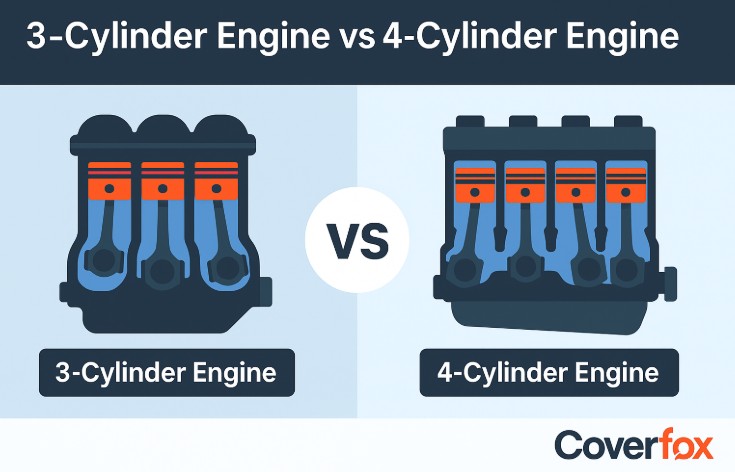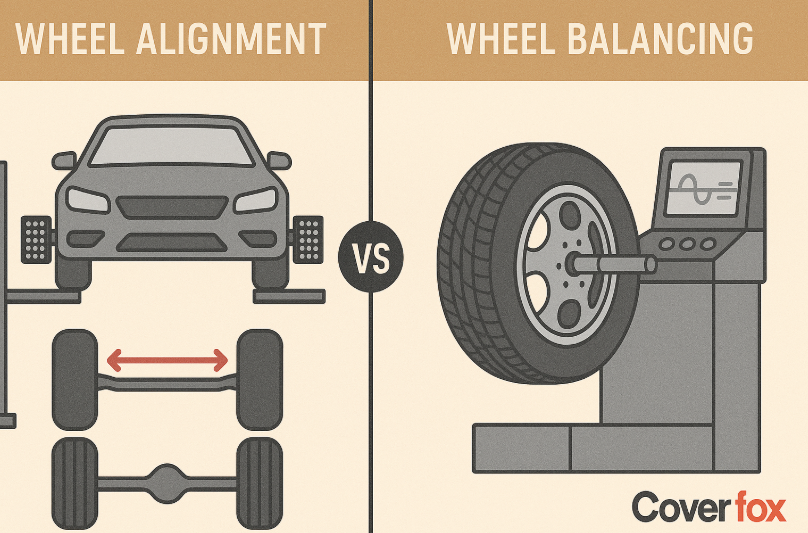Buying your first car is thrilling but requires smart insurance choices. Learn the importance of car insurance, the different coverage options, things to think about, and professional advice for choosing the best policy to protect your new wheels.

Purchasing your first vehicle is an exciting milestone, but it also comes with a lot of responsibility. One of the most important things you need to consider is getting the right car insurance. With so many options available, it can be overwhelming to choose the best car insurance for your first vehicle. In this article, we’ll discuss some tips to help you select the best car insurance for your new ride.
Why Is Car Insurance Important?
Car insurance is a legal requirement in most countries, and for good reason. It provides financial protection in case of an accident, theft, or damage to your vehicle. Without car insurance, you could be held liable for any damages or injuries caused by your vehicle, which can result in significant financial loss.
Protects You from Third-Party Claims
Car insurance protects you from third-party claims, which means that if you are involved in an accident and someone else is injured or their property is damaged, your insurance will cover the costs. This can save you from having to pay out of pocket for expensive medical bills or property damage.
Covers Damage to Your Vehicle
Car insurance also covers damage to your own vehicle, whether it’s caused by an accident, theft, or natural disaster. This can save you from having to pay for costly repairs or replacements.
Mandatory for Vehicle Registration
In most countries, car insurance is mandatory for vehicle registration. This means that you cannot legally drive your vehicle without having valid car insurance. If you are caught driving without insurance, you could face fines, license suspension, or even jail time.
Types of Car Insurance
There are several types of car insurance policies available, each offering different levels of coverage. The most common types of car insurance are:
Third-Party Car Insurance
Third-party car insurance is the most basic and affordable type of car insurance. It only covers damages or injuries caused to third parties, and does not cover any damage to your own vehicle. This type of insurance is mandatory in most countries.
Comprehensive Car Insurance
Comprehensive car insurance offers the most extensive coverage. It covers damages to your own vehicle, as well as damages or injuries caused to third parties. It also covers theft, natural disasters, and other incidents.
Third-Party, Fire and Theft Car Insurance
This type of insurance offers the same coverage as third-party car insurance, but also includes protection against fire and theft.
Factors to Consider When Buying Car Insurance
When selecting the best car insurance for your first vehicle, there are several factors you should consider. These include:
Voluntary Deductible Claim Benefit
A voluntary deductible is the amount you agree to pay towards any claim you make. This amount is in addition to the compulsory deductible set by your insurance company. Opting for a higher voluntary deductible can lower your insurance premium, but it also means you will have to pay more out of pocket in case of a claim.
Add-Ons and Additional Coverage
Many insurance companies offer add-ons or additional coverage options that you can add to your policy for an extra cost. These can include coverage for damage to additionally-fitted accessories, roadside assistance, and more. Consider your needs and budget when deciding which add-ons to include in your policy.
Insurance Options for New Drivers
If you are a new driver, you may face higher insurance premiums due to your lack of driving experience. Look for insurance companies that offer special policies or discounts for new drivers to help lower your costs.
Motor Insurance Claim Settlement Ratio
The claim settlement ratio is the percentage of claims that an insurance company settles compared to the total number of claims received. A higher claim settlement ratio indicates that the insurance company is more likely to settle your claim in case of an accident or damage to your vehicle.
Tips for Selecting the Best Car Insurance
Now that you know what to consider when buying car insurance, here are some tips to help you select the best policy for your first vehicle:
Research and Compare Policies
Before making a decision, research and compare policies from different insurance companies. Look at the coverage, premiums, and add-ons offered by each company to determine which one offers the best value for your money.
Read Reviews and Ask for Recommendations
Reading reviews and asking for recommendations from friends and family can help you get a better understanding of the quality of service provided by different insurance companies. This can also help you avoid companies with a history of poor customer service or claim settlement issues.
Consider Your Vehicle’s Age and Condition
The age and condition of your vehicle can affect your insurance premium. Older vehicles may have a lower premium, but they may also have a lower claim settlement value. Consider the age and condition of your vehicle when selecting the best car insurance for your first vehicle.
Don’t Just Focus on the Premium
While a lower premium may seem attractive, it’s important to also consider the coverage and add-ons offered by the insurance company. A slightly higher premium may provide better coverage and add-ons that can save you money in the long run.
Read the Fine Print
Before signing on the dotted line, make sure you read the fine print of your insurance policy. Pay attention to the coverage, exclusions, and any additional terms and conditions. This will help you avoid any surprises or issues when making a claim.
Real-World Examples of Car Insurance Policies
To help you better understand how to select the best car insurance for your first vehicle, here are some real-world examples of car insurance policies:
Geico
Geico offers a comprehensive car insurance policy that covers damages to your vehicle, as well as damages or injuries caused to third parties. They also offer add-ons such as roadside assistance and rental reimbursement.
Progressive
Progressive offers a variety of car insurance policies, including third-party, comprehensive, and third-party, fire and theft. They also offer add-ons such as gap insurance and custom parts and equipment coverage.
State Farm
State Farm offers a comprehensive car insurance policy that covers damages to your vehicle, as well as damages or injuries caused to third parties. They also offer add-ons such as rental reimbursement and emergency road service.
Conclusion
Selecting the best car insurance for your first vehicle is an important decision that requires careful consideration. By researching and comparing policies, considering your needs and budget, and reading the fine print, you can find the right car insurance policy to protect your new ride. Remember to also regularly review and update your policy to ensure you have the best coverage for your changing needs.





